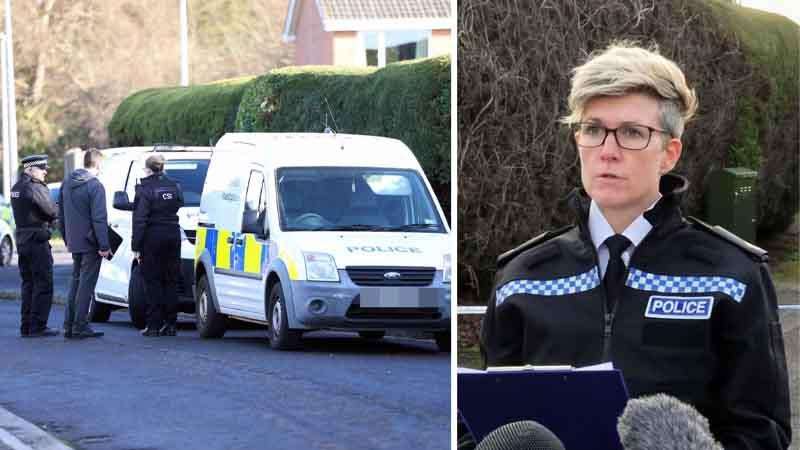The political ground beneath Prime Minister Keir Starmer's feet is shaking, as a growing rebellion within the Labour Party's "soft left" faction intensifies. Whispers of a leadership challenge have escalated into open plotting, driven by profound dissatisfaction over his recent policy decisions, including a controversial U-turn on winter fuel payments and hardline stances on migration. The question of "How could Starmer be replaced?" is no longer theoretical, but a pressing reality for a party grappling with internal divisions and declining public approval, Daily Dazzling Dawn understands.
Starmer's unexpected reversal on winter fuel payment cuts during Prime Minister's Questions this week, though offering a temporary reprieve, is widely seen as a desperate bid to cling to power. This comes after ten turbulent months marked by his government's increasingly rightward shift. A critical turning point for many was his recent migration announcement, with some in Labour decrying its echoes of Enoch Powell's infamous "Rivers of Blood" speech, signaling a fundamental divergence from traditional party values.
The "soft left" is now actively strategizing to force a change in leadership and policy direction. Allies of Deputy Prime Minister Angela Rayner are reportedly urging her to step forward and launch a leadership contest. Under Labour Party rules, a challenger needs nominations from at least 20% of Labour MPs to trigger a contest. Once nominations are secured, the leader is automatically on the ballot, and the contest proceeds to a one-member, one-vote system, often using an alternative vote (AV) system.
However, Rayner's potential path is not without obstacles. She has reportedly been the target of a "poisonous briefing campaign," with leaked memos about alternative tax proposals and rumors of demotion, attempts seemingly designed to neutralize her before a challenge can begin. Speculation also swirls around a cabinet reshuffle, with Chancellor Rachel Reeves's position reportedly precarious, as Starmer seeks a "complete reset" to his government.
Despite Starmer's efforts to highlight successes in recent trade deals with the US, India, and the EU, many Labour insiders feel there is "no way back" after the migration policy. One senior figure noted, “The party, activists and MPs have been asked to swallow a lot in the first 10 months of this government… but the migration announcement was an ‘enough is enough’ watershed moment.”
Further compounding Starmer's troubles is the widespread belief among Labour MPs that he has been "too soft" on Israel and should have ended arms sales "long ago." On the ground, voter feedback paints a bleak picture, with YouGov's latest polling showing Starmer's net favorability rating at -46, his lowest ever recorded. A significant portion of the public, 65%, now holds an unfavorable view of the Labour Party itself.
Moreover, recent Techne UK polls reveal Labour trailing Nigel Farage’s Reform UK by eight points, indicating a failure to counter the populist right. Analysis also shows a worrying defection of Labour voters to the Liberal Democrats (13% of 2024 Labour voters switching, 41% open to switching) and Greens (29% open to switching).
How Could Starmer Be Replaced? The Road Ahead
The most direct path to replacing Keir Starmer as Labour leader, and potentially the next UK Prime Minister, involves a leadership challenge. Angela Rayner is clearly positioned as the leading contender. While she has publicly downplayed her aspirations, her allies are actively building support. To become leader, she would need the 20% MP nominations, followed by a vote among party members, where she is seen as having significant support due to her more progressive stance.
Another figure mentioned, though less prominently, is Health Secretary Wes Streeting, from the right of the party. However, his perceived "too right-wing" policies and the potential risk of losing his own seat pose significant hurdles to a successful leadership bid.
The crucial turning point for Starmer's leadership is increasingly seen as May 2026. This period will see significant elections for the Scottish Parliament, Welsh Senedd, and English councils and mayors. Party insiders are "circling" this date, suggesting that disastrous results, mirroring the party's poor performance in recent local elections, would almost certainly trigger a formal challenge. A "nightmare scenario" would involve Labour losing control of Wales for the first time and finishing third to Reform UK and Plaid Cymru, and similarly coming in third in Scotland behind the SNP and Reform.
For Starmer's allies, the recent winter fuel U-turn offers a glimmer of hope that he can mend some of the damage by showing he "listened." They urge MPs to "stay the course," emphasizing his efforts on international trade deals. However, the deep-seated discontent and growing calls for a fundamental change in direction within the Labour Party suggest that the race for the next UK Prime Minister is already underway, with Angela Rayner poised to play apivotal role.








.svg)



